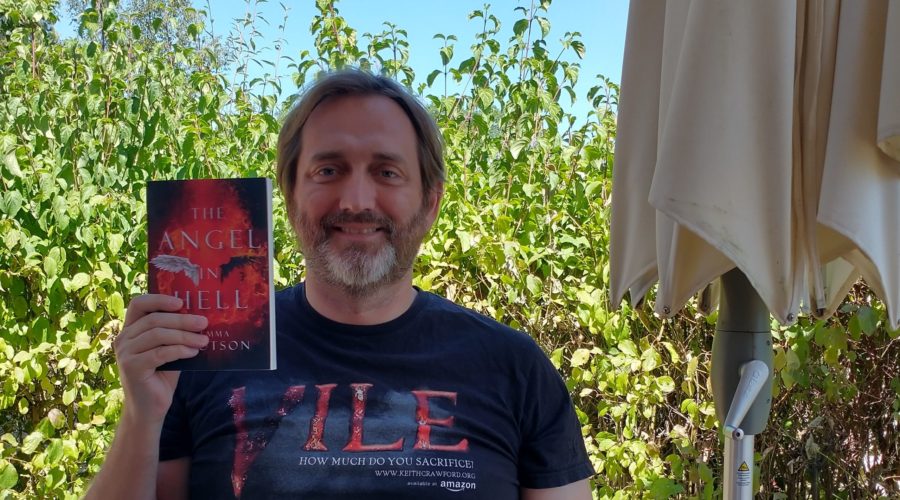Link :Amazon, Goodreads. Price: £10
Serena has been brought up by her brother Samuel after the disappearance of their father sent their mother into the embrace of alcoholism. While exploring an abandoned church, Serena meets the angel Calius, banished from paradise for a crime he cannot remember, and the demon Killian who has been assigned to watch over him by heaven. Has Serena inadvertently stumbled into this world beyond her imagining, or has she deeper connections to heaven and hell than she ever imagined possible?
French literary theorists have spent centuries arguing whether inspiration or craft is the most important quality of good poetry (and, arguably, by extension, good literature). The consensus seems to come down on the side of inspiration: there is no poem without the passion of the writer. I often feel that craft is grotesquely undervalued, and there are plenty of great minds who agree. Paul Valery reminds us that the job of the poet to inspire more than to be inspired. As Stéphane Mallarmé said to Edgar Degas: you don’t make a poem with ideas, you make it with words.
Then we get a book like The Angel in Hell. Ibbotson’s writing is pure inspiration. I don’t like to ascribe too much of a piece of writing to an author’s personality, but this story feels like Ibbotson is sharing her deepest fantasies with us. The closest comparison I can make is good fan fiction. I know some people turn their noses up at fan-fiction – if you’re one of them, of if you’re curious, you owe it to yourself to google “an archive of our own” and discover some of the most passionate writing on the internet. People write fanfiction because they have a story the are so desperate to write that they will get it on the page no matter what. And, for all that I’ll quote Valery and Mallarmé, one of the best books I ever read was Harry Potter fan fiction.
Ibbotson’s book is not fan fiction, but what she manages to do is embody that “write and be damned” passion of an author sharing their fantasy with creative world building that is full of twists and surprises. Ibbotson either doesn’t know or doesn’t care about story structure conventions, which means that, even though it is a mostly conventionally Christian fantasy romance, it kept me on my toes and regularly surprised. She seems to care deeply about the characters, and, Valery be damned, that made me care about them as well. This is a very, very girly romance but it is told with such conviction that I thoroughly enjoyed it. If you like romance with massive dollops of fantasy and author investment, then give this book a try.



